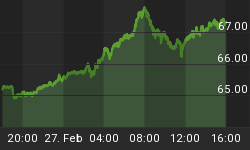The central bank support that Cramer was crying for last week arrived, and it didn't work.
A funny thing happened during today's central bank bailout attempt: the markets plunged. Is it just me, or when central bankers unite and throw money at a problem isn't that problem supposed to go away?
Granted, the CB 'liquidity' injections, which were aimed at soothing panicky investor response to one of the largest banks in France ceasing redemptions on three of its hedge funds, were not specifically targeted at subpime assets (what would be solved by shifting toxic assets to central bank coffers?). Nevertheless, when three leading central banks act in unison - one with the largest liquidity injection since 9/11 - what you don't expect is for the markets to tank. Anticipating further subprime/credit/hedge fund related blowups in the weeks ahead, for central banks is it as case of try, try again? Maybe not. After all, the last thing the CBs want to do is wake gold up, which is one of the few assets whose recent behavior central bankers actually approve of.
Suffice to say, the negative market response to today's central bank activities spawned more questions than answers for the investor.
- Realizing the subprime carnage is spreading, what asset classes are worth buying right now?
- Given that a further slump in the financial markets could quickly signal a serious economic slow down, are commodities (and gold?) now a strong sell?
- Content in the knowledge that the only solution for bad debts is to blow them up, will beaten central bankers crawl into a corner until their services are really required?
- Finally, at what point does the value investor start accumulating stocks amidst the carnage?
While the first three questions are worthy of in-depth discussion - and probably a migraine or two - the last question can be answered with great ease: NOW! To be sure, those investors holding a lot of cash have opportunities flying across their screens daily, and they should not be hesitant to put some money to work when the right situation comes along. This is not to say that equities are, broadly speaking, a buy. They are not. Only that there are specific companies being missapraised in the marketplace, either because of overly aggressive short selling, forced selling by hedge funds to free up capital, or simply smaller investors giving up.
Peck: "To strike or indent with the beak, as a bird does, or with some pointed instrument, with quick, repeated movements." Dictionary.com
Given that no one is going to yell 'all clear' when it is worth buying stocks, if you want to profit from today's mayhem you have to gently pluck yourself off of the sidelines. Like Buffett's addition of BNI shares last week, it is up to the individual investor to find a situation they are comfortable with, and start pecking at it.
But what if central bank bailouts fail again and the markets tank? Peck some more.
What if the subprime meltdown sparks a panic like 1929 and a global depression follows? Peck some more.
Yes, the overriding theme in the face of a widespread market sell off is 'peck'. However, don't get too carried away, and don't be afraid to lock in some profits on companies rallying well beyond what you think the fundamentals dictate*. After all, if you are 100% equities you can't peck in a falling market. Rather, you get impaled...
















